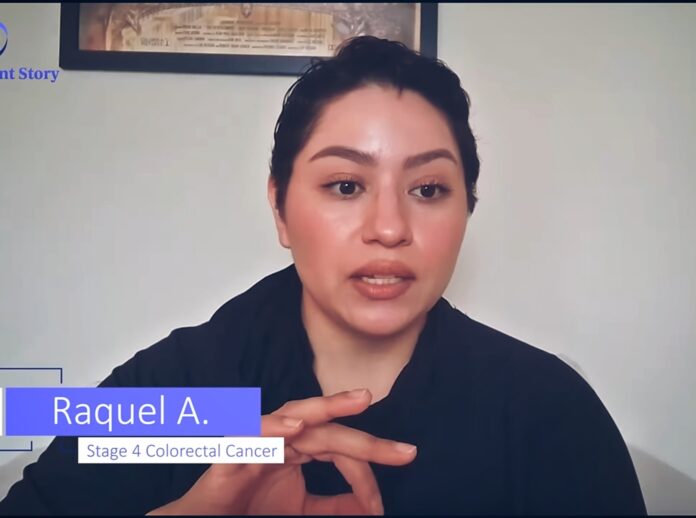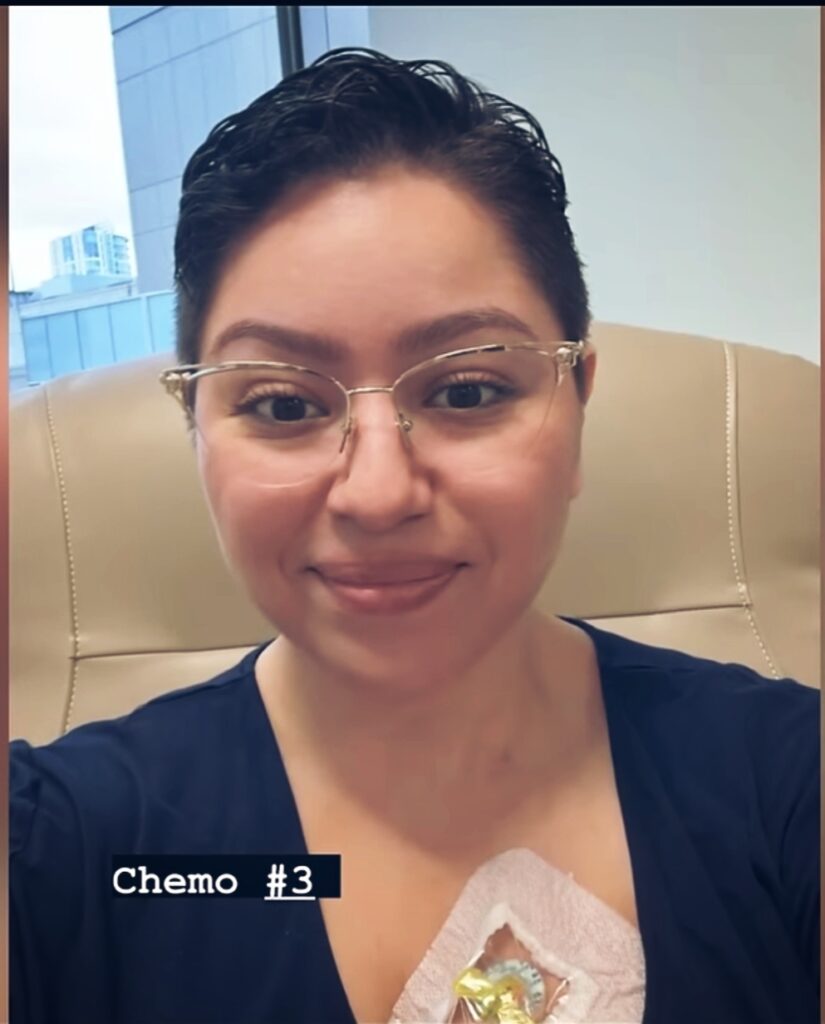Colon cancer is one of the most common types of cancer worldwide, and understanding its symptoms can save lives. Whether you're concerned about your health or someone you care about, it's crucial to stay informed. In this article, we'll dive deep into the symptoms of colon cancer, particularly focusing on Raquel's story and how her journey sheds light on early detection and prevention. So, buckle up, because this is gonna be an eye-opening ride!
Imagine being in Raquel's shoes—she thought her symptoms were just a result of stress or bad eating habits. But little did she know, her body was sending warning signals that needed immediate attention. Colon cancer symptoms are often subtle, which is why they can be easily overlooked. That's why we're here—to break it down for you in a way that’s easy to digest, literally!
Whether you're a health enthusiast, a concerned friend, or just curious about the topic, this article has got you covered. We'll talk about everything from the early signs of colon cancer to how Raquel's experience can help others recognize these symptoms before it's too late. Let's get started!
Read also:Stella Banderas The Iconic Journey Of A Remarkable Woman
Who Is Raquel? A Closer Look
Raquel Colon is not just a name but a symbol of resilience and awareness in the fight against colon cancer. Her journey began when she noticed some unusual changes in her body. At first, she dismissed them as minor issues, but over time, the symptoms grew more persistent. This section will explore Raquel's background, her battle with colon cancer, and how her story has inspired many.
Raquel's Personal Details
To give you a clearer picture of Raquel's life, here’s a quick rundown of her personal information:
| Full Name | Raquel Colon |
|---|---|
| Age | 47 |
| Occupation | Healthcare Advocate |
| Location | San Juan, Puerto Rico |
Raquel Colon Cancer Symptoms: What to Watch For
Now, let's dive into the specifics of Raquel's symptoms. Knowing what to look for can make all the difference in early detection and treatment. Here's a breakdown of the common signs Raquel experienced:
- Changes in Bowel Habits: Raquel noticed irregular bowel movements, including diarrhea and constipation.
- Blood in Stool: This was one of the most alarming signs for her, and it prompted her to seek medical advice.
- Abdominal Pain: Persistent discomfort in the abdomen was another red flag.
- Unexplained Weight Loss: Raquel lost weight without trying, which worried her family.
- Fatigue: Feeling unusually tired all the time was another symptom she couldn't ignore.
Why Early Detection Matters
Early detection is key when it comes to colon cancer. The sooner the disease is identified, the better the chances of successful treatment. Raquel's case highlights the importance of listening to your body and seeking medical attention when something feels off. Here’s why early detection can be a game-changer:
Statistics Speak Volumes
According to the American Cancer Society, colon cancer has a five-year survival rate of about 64% when detected early. However, this number drops significantly if the cancer spreads to other parts of the body. Raquel's proactive approach to her health is a testament to the power of early intervention.
Risk Factors for Colon Cancer
Understanding the risk factors can help you assess your likelihood of developing colon cancer. Here are some of the key factors to consider:
Read also:Sarah Dugdale The Rising Star Shaping The Future Of Tech
- Age: The risk increases significantly after the age of 50.
- Family History: If you have a close relative with colon cancer, your risk is higher.
- Personal Health: Conditions like inflammatory bowel disease (IBD) can increase your risk.
- Lifestyle Choices: Diet, physical activity, and smoking all play a role in your risk profile.
Screening Options for Colon Cancer
Screening is one of the most effective ways to catch colon cancer early. Here are some of the common screening methods:
Fecal Occult Blood Test (FOBT)
This test checks for hidden blood in the stool, which can be an early sign of colon cancer. It’s simple, non-invasive, and highly effective.
Colonoscopy
A colonoscopy allows doctors to examine the entire colon and rectum for signs of cancer. It’s considered the gold standard for colon cancer screening.
Raquel's Journey: Diagnosis and Treatment
Raquel's journey from diagnosis to treatment is both inspiring and educational. After noticing the symptoms, she wasted no time in consulting a doctor. Her diagnosis was confirmed through a colonoscopy, and she underwent surgery to remove the cancerous tissue. Here’s a glimpse of her treatment process:
Steps in Raquel's Treatment
Raquel's treatment plan included:
- Surgery: To remove the affected part of the colon.
- Chemotherapy: To kill any remaining cancer cells.
- Follow-Up Care: Regular check-ups to monitor her health.
How You Can Take Action
Now that you know more about Raquel's story and the symptoms of colon cancer, it’s time to take action. Here are some steps you can take to protect yourself and your loved ones:
- Stay Informed: Keep up with the latest research and guidelines on colon cancer.
- Get Screened: Don’t wait for symptoms—get screened regularly, especially if you’re over 50.
- Live a Healthy Lifestyle: Eat a balanced diet, exercise regularly, and avoid smoking.
Support and Resources for Colon Cancer
There are numerous resources available for those affected by colon cancer. From support groups to educational materials, these resources can provide the help and guidance you need. Here are a few worth checking out:
Colon Cancer Alliance
This organization offers a wealth of information and support for colon cancer patients and their families. Their website is packed with resources and tools to help you navigate your journey.
The Future of Colon Cancer Research
Advances in medical research are paving the way for better treatments and earlier detection methods. Scientists are exploring new technologies and therapies that could revolutionize the way we approach colon cancer. Stay tuned for exciting developments in the field!
Conclusion: Empower Yourself with Knowledge
Raquel's story is a powerful reminder of the importance of understanding colon cancer symptoms. By staying informed and taking proactive steps, you can significantly reduce your risk and improve your chances of early detection. So, what are you waiting for? Share this article, start the conversation, and take control of your health today!
Remember, knowledge is power, and when it comes to colon cancer, being aware can save lives. Don’t hesitate to reach out to your doctor if you notice any unusual symptoms. Together, we can make a difference!
Table of Contents
- Who Is Raquel? A Closer Look
- Raquel Colon Cancer Symptoms: What to Watch For
- Why Early Detection Matters
- Risk Factors for Colon Cancer
- Screening Options for Colon Cancer
- Raquel's Journey: Diagnosis and Treatment
- How You Can Take Action
- Support and Resources for Colon Cancer
- The Future of Colon Cancer Research
- Conclusion: Empower Yourself with Knowledge


